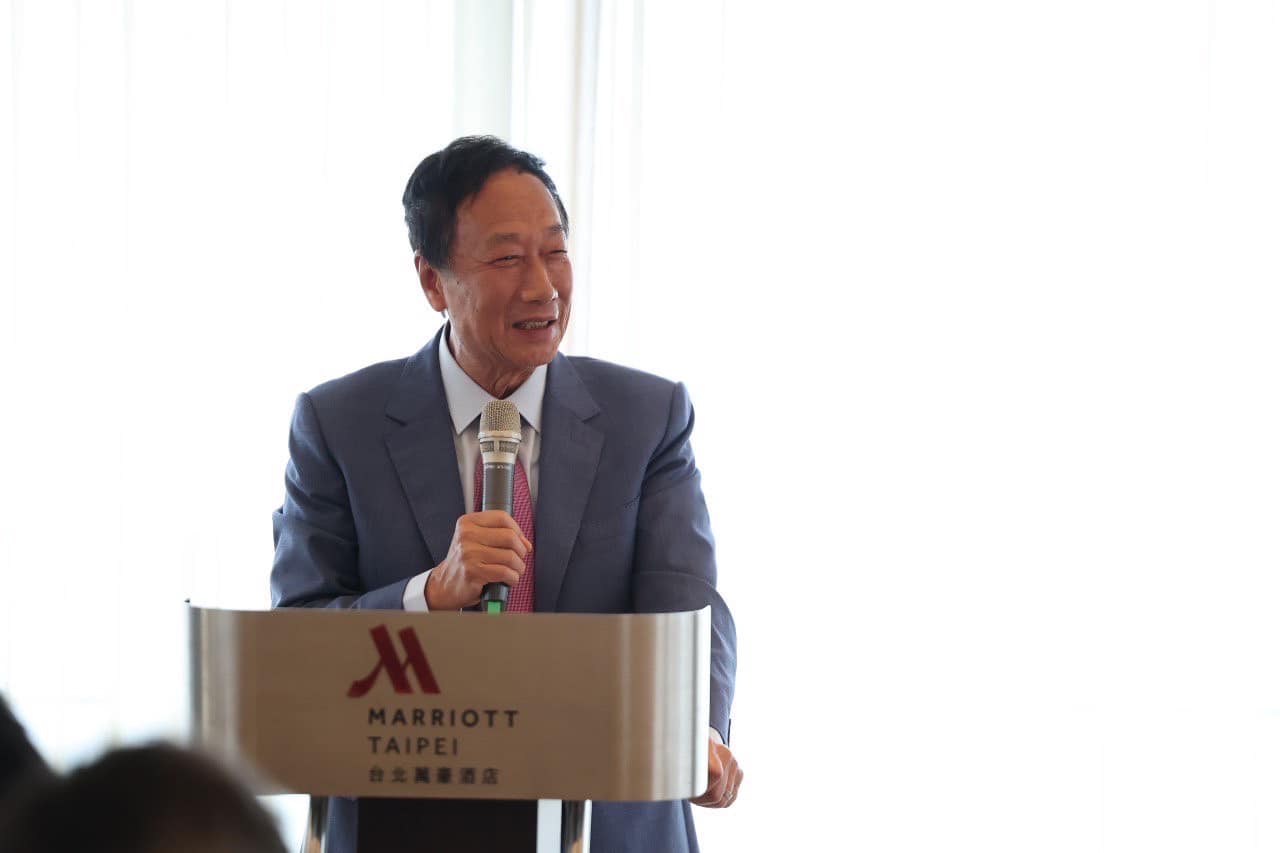by Brian Hioe
語言:
English
Photo Credit: Ko Wen-je/Facebook
ALTHOUGH IT IS not likely to become the key issue to be voted on, seeing as presidential elections traditionally revolve around the issue of cross-strait relations, the issue of nuclear energy will be an important substrate of the Taiwanese presidential elections. It proves unsurprising, then, that the issue of nuclear energy has again come up as a contentious issue–as it has long been in Taiwan, given Taiwan’s nature as an island country.
In particular, the pan-Blue camp has sought to attack the DPP over the issue of nuclear energy. The DPP has traditionally been more cautious on the issue of nuclear energy, while the KMT has been strongly supportive of it.
Contention between the two major political camps has already taken various forms during the election cycle. One of the ways that this has manifested is with regard to a proposal by FoxConn founder Terry Gou to construct small-scale nuclear reactors across all of Taiwan. Specifically, Gou started by suggesting that a small-scale nuclear reactor could be built into the side of Mount Banping, near Kaohsiung, and that this reactor would bring economic prosperity to Kaohsiung.
 FoxConn founder Terry Gou. Photo credit: Terry Gou/Facebook
FoxConn founder Terry Gou. Photo credit: Terry Gou/Facebook
At the time, Gou’s suggestion was widely criticized because of its unrealistic nature. Moreover, Taiwan has long been concerned about nuclear energy because of the fear that Taiwan’s frequent seismic activity could lead to a catastrophic nuclear disaster in the mold of Japan’s 2011 Fukushima disaster. Likewise, Taiwan has long faced issues with limited places to store nuclear waste, given Taiwan’s limited land mass and because local communities usually are not willing to host facilities for nuclear waste disposal or storage.
Since Gou’s proposal, however, the KMT has committed to the idea. To this extent, Gou questioned DPP presidential candidate William Lai over the question of Taiwan’s energy supply in the event of war. This pushed Lai to concede that, in spite of the DPP’s plans to phase out nuclear energy, nuclear restarts may be necessary in emergencies because of Taiwan’s need for energy supply when shipments are cut off by a Chinese blockade. Though this possibility has long been discussed behind closed doors, this was one of the few major times that this scenario was raised as part of public discourse. Afterward, the DPP reiterated its commitment to phasing out nuclear energy.
Though Gou was passed over by the KMT for its presidential candidate in favor of New Taipei mayor Hou You-yi, the issue of nuclear energy remains a salient issue of contention. As might be expected of any pan-Blue candidate, Hou has continued to attack the DPP over the issue of nuclear energy.
In a time of rising tensions between Taiwan and China–for which the KMT has sought to pin the blame on the DPP for stoking tensions–the national security angle is perhaps increasingly prevalent in the nuclear energy debate. Hou has sought to attack the DPP, then, alleging that Taiwan lacks energy supply and that it needs nuclear power plants in order to bolster its lack of energy.
One of the reasons why the international world is incentivized to defend Taiwan is because of global reliance on Taiwanese semiconductors. Taiwan produces more than 90% of the world’s advanced semiconductors and over 60% of all semiconductors worldwide. As such, the prospect of semiconductor manufacturing giant TSMC constructing a major facility in Arizona has stoked fears about the company moving key processes out of Taiwan and Taiwan, in this way, losing what incentivizes other countries to defend Taiwan.
 New Taipei mayor Hou You-yi. Photo credit: Hou You-yi/Facebook.
New Taipei mayor Hou You-yi. Photo credit: Hou You-yi/Facebook.
Hou suggested that without nuclear energy, the Taiwanese semiconductor industry could move out of Taiwan because of power outages that lead to stoppages of supply lines. In this, Hou would be stoking fears on the basis of frequent power outages in Taiwan.
Such outages do not occur due to lack of supply, but because of disruptions in other parts of Taiwan’s energy infrastructure. Consequently, the DPP has sought to defend itself by pointing out that periods in which energy supply was critically scarce, in fact, more commonly date to the KMT Ma administration while also citing how the Ma administration also slowed down the pace of nuclear energy construction in Taiwan. The DPP has also sought to highlight lawsuits between the New Taipei government and Taipower over nuclear energy storage in New Taipei. Yet Hou’s narrative is likely to play over well with members of the public that do not realize that only 8% of Taiwan’s energy supply comes from nuclear energy, as of March of this year.
The debate over nuclear energy between the pan-Blue and pan-Green camps largely has to do with differing views of Taiwan’s history, as well as nationalist identity, more than a cost-benefit analysis of what energy sources work best for Taiwan. This has long been the key driver of contention between the DPP and KMT over what energy sources Taiwan should rely on. This dynamic also plays out in the present election cycle.

